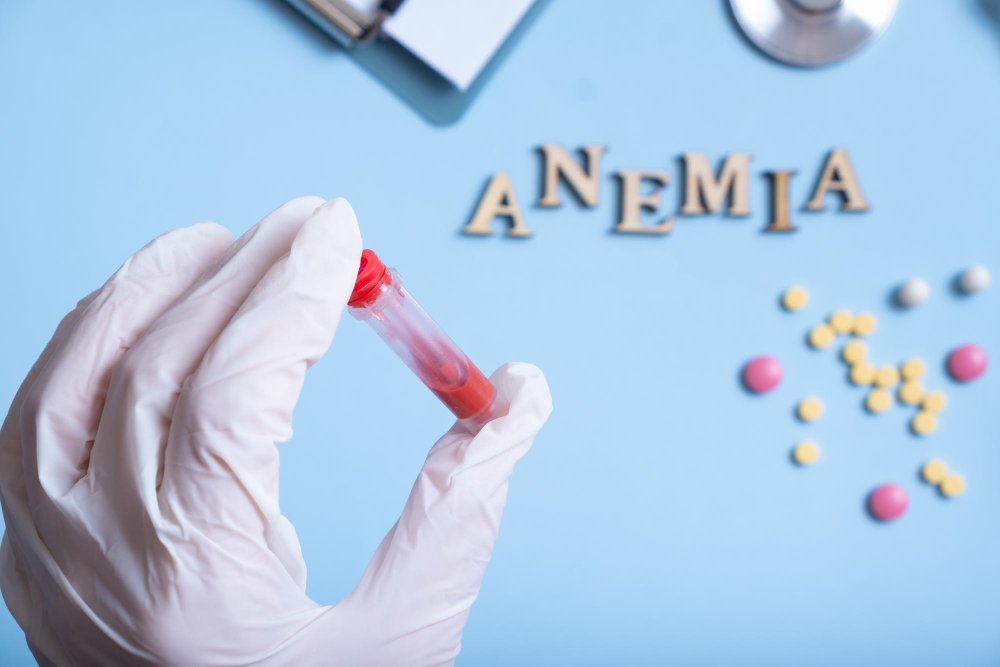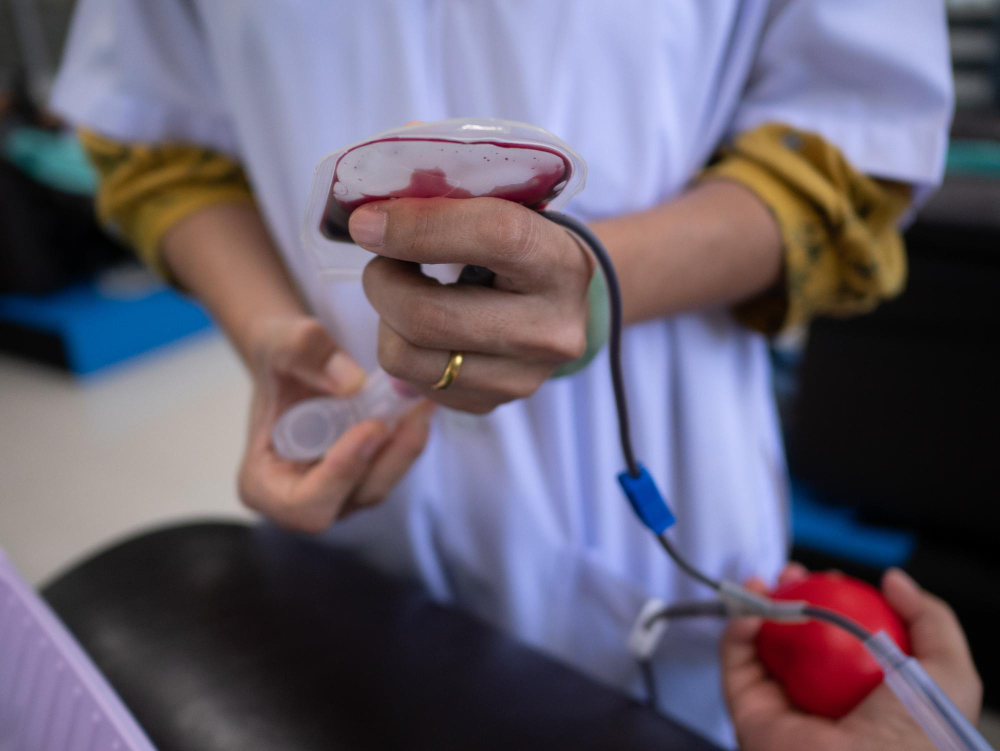- Fast results
- 4,000+ locations
- 4.8 star rating
Need Help? (888) GET LABS



Anemia is a blood condition where the number of healthy red blood cells (RBC) that deliver oxygen to the body becomes too low.
The shortage of RBC can lead to an insufficient supply of oxygen, causing critical disruptions in the body’s overall health. Keep in mind that oxygen is crucial for cellular respiration – a process that provides energy to all tissues for the body to function well.
While anemia is not as severe as other chronic disorders, paying attention to the condition is crucial to prevent complications. Below, we discuss the types, causes, symptoms, and general treatment for anemia.
Anemia is an umbrella term for insufficient functional RBCs. The various types of anemia(1) can be classified based on cause, encompassing the following conditions.
| Learn more about the specific types of anemia through the following guides:Iron Deficiency Anemia: How Serious Can It Get?How to Get Tested for Sickle Cell Anemia?How Serious Is Macrocytic Anemia? [+ 3 Ways To Address It] |
Nutritional deficiencies, specifically involving iron, vitamin B12, and folate, commonly lead to anemia. For example, the lack of iron can drive anemia because of its part in forming the protein hemoglobin, where the oxygen binds.

Causes of anemia can also expand to the following:
Anemia results from conditions that limit oxygen supply, which means signs and symptoms linked with anemia can span from respiratory issues to digestive problems. The term “anemic” has been associated with people diagnosed with anemia, which was primarily observed through the following symptoms:
If you are experiencing the symptoms above, see your doctor for a proper diagnosis. Aside from assessing your symptoms, you will likely undergo some blood tests to narrow down the type of anemia you have.
You can expect the following test to accurately detect low levels of red blood cells in your body.
There is no one-size-fits-all when treating anemia, primarily due to its diverse categorization. As a rule of thumb, proper anemia treatment can only transpire if the cause is correctly identified.
Suppose the driving force behind the development of anemia is a nutritional deficiency in iron, folate, and vitamin b12. In that case, treatment may focus on nutritional supplements and dietary prescriptions that would increase the amount of these vitamins and minerals.
Severe cases, however, may require certain injections and even blood transfusion to increase the red blood cell count. If the cause is traced back to blood marrow problems, a marrow transplant(5) may be needed depending on the seriousness of the condition.

Anyone with a poor diet can have anemia, meaning the condition is typically acquired. However, some people have a higher risk of developing anemia due to physiological and health differences. This includes the following:
Some anemias are curable while others are not, yet they are manageable. Anemias caused by nutrient deficiency are highly curable, mainly as insufficient nutrient supply is addressed. On the other hand, anemias caused by genetic disorders or autoimmunity, like aplastic anemia, sickle cell anemia, and thalassemia, don’t have a cure yet. Instead, the symptoms are managed through specific sets of treatments.
When preparing a diet plan for anemia, add foods high in iron, vitamin B12, and folates. These nutrients are essential in the production and maturation of red blood cells.
Hydration indirectly helps with anemia, especially when facilitating nutrient absorption and promoting better vascular activity. However, drinking water alone is not enough to address anemia. Even if your water intake is regular and adequate, it won’t significantly affect you if you don’t follow the anemia treatment your doctor prescribes.
Understanding what is anemia, its type, causes, symptoms, and treatment options allows you to take preventive measures and seek immediate medical intervention when necessary. If you suspect anemia based on symptoms you experience, consult your doctor and avoid performing self-diagnosis to secure a proper treatment plan.
1 Omer A, Hailu D, Nigusse G, Mulugeta A. Magnitude and morphological types of anemia differ by age among under-five children: A facility-based study. Heliyon. 2022 Sep 1;8(9):e10494. doi: 10.1016/j.heliyon.2022.e10494. PMID: 36105468; PMCID: PMC9465352.
2 Langan RC, Goodbred AJ. Vitamin B12 Deficiency: Recognition and Management. Am Fam Physician. 2017 Sep 15;96(6):384-389. PMID: 28925645.
3 Khan KM, Jialal I. Folic Acid Deficiency. [Updated 2023 Jun 26]. In: StatPearls [Internet]. Treasure Island (FL): StatPearls Publishing; 2024 Jan-. Available from: https://www.ncbi.nlm.nih.gov/books/NBK535377/
4 Baranski BG, Young NS. Autoimmune aspects of aplastic anemia. In Vivo. 1988 Jan-Feb;2(1):91-4. PMID: 2979824.
5 Bacigalupo A, Benintende G. Bone marrow transplantation for acquired aplastic anemia: What’s new. Best Pract Res Clin Haematol. 2021 Jun;34(2):101284. doi: 10.1016/j.beha.2021.101284. Epub 2021 Jul 7. PMID: 34404530.

© Copyright 2025 Personalabs. All Rights Reserved.